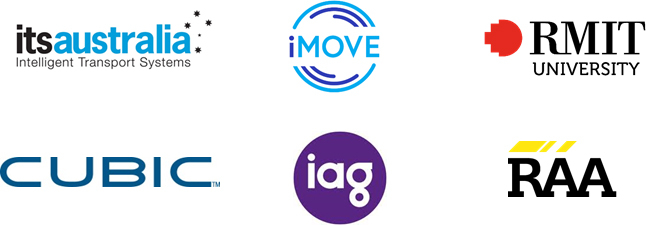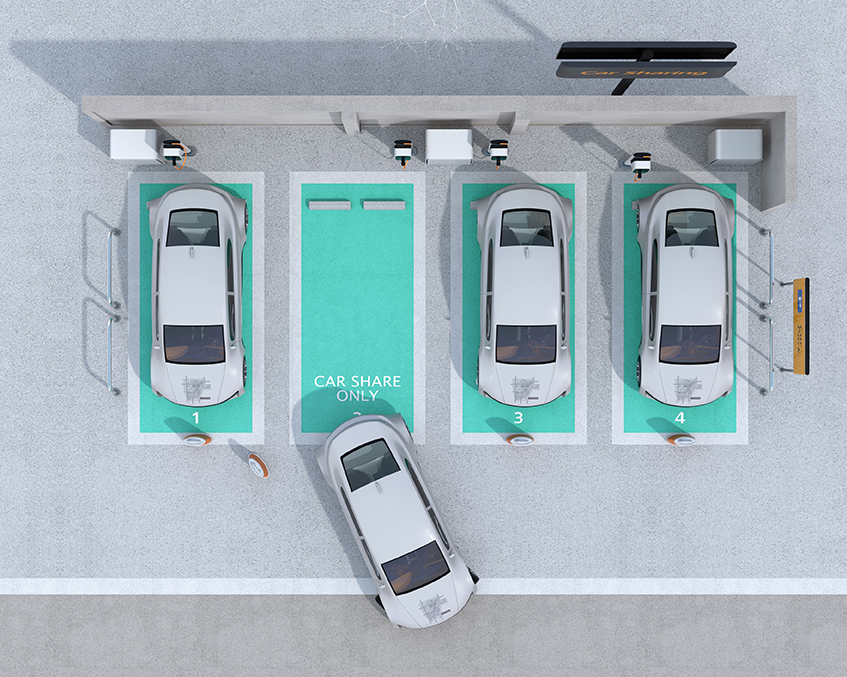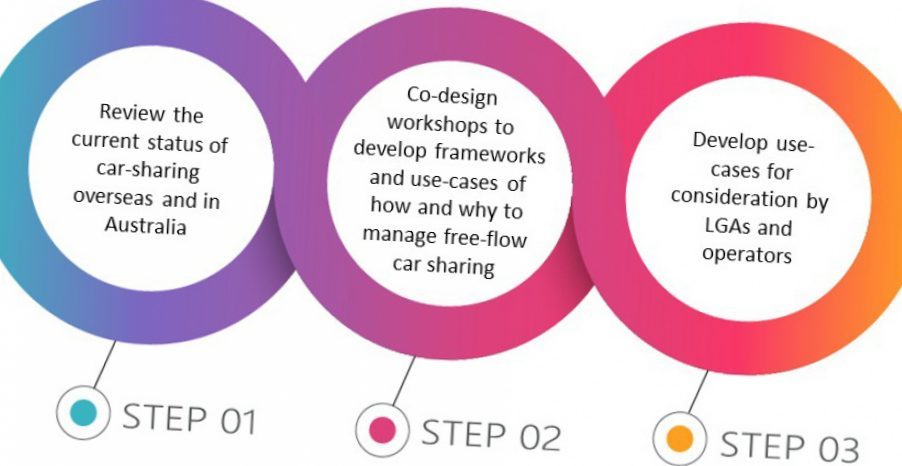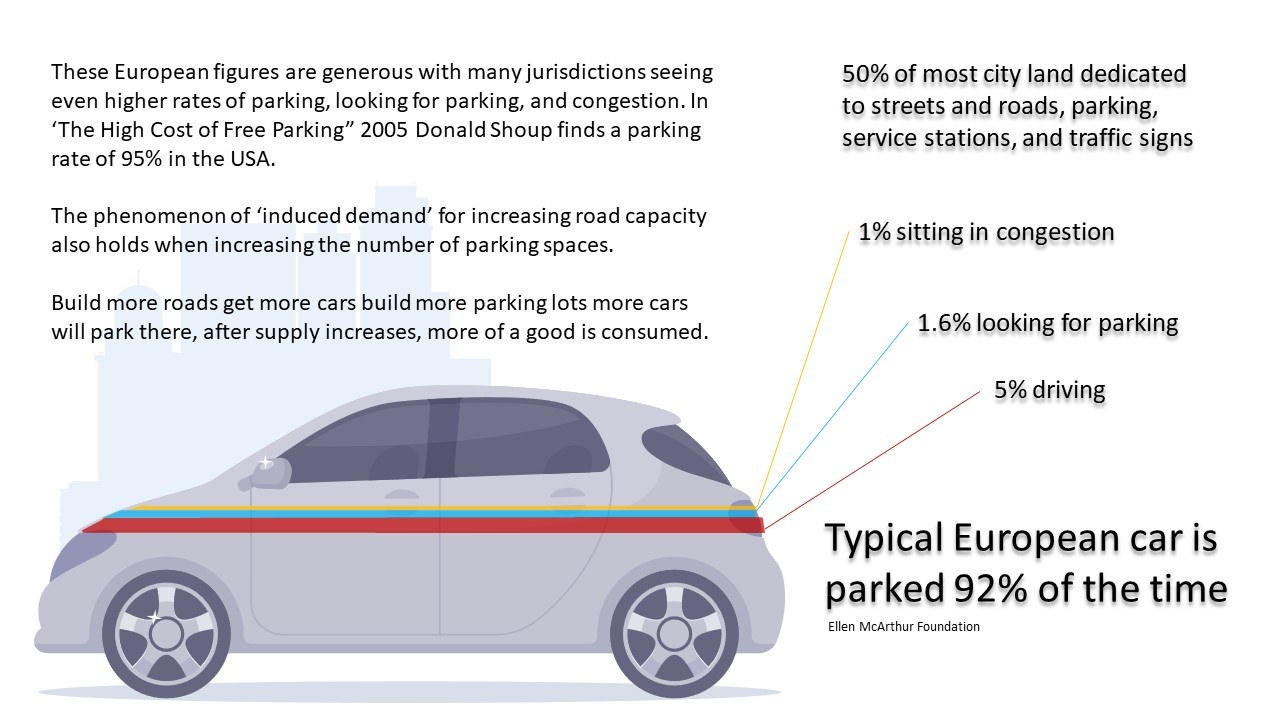Unlocking Shared Mobility
Investigating free-flow parking for car-share in Australia
ITS Australia's Unlocking Shared Mobility research project will allow us to understand better how we can collaboratively work to increase the options for customers to access car-share services to improve outcomes for our transport networks and communities.
In this section
Across Australia, there is increasingly intense competition for kerbside space and parking. Roadside infrastructure management is a complex challenge in most jurisdictions so working to better understand and improve current parking arrangements will tackle a range of high priority issues for local and state governments, businesses, and our growing urban and regional centres.
The current, round trip, car-share services in Australia are proven to reduce the use of motor vehicles, and can also increase the use of public transport, cycling, and walking.
Free-floating car sharing services (FFCS) have been introduced in a range of jurisdictions internationally as an additional option to round trip car-sharing. FFCS removes the need for the shared vehicle to have a specific parking spot, most commonly allocated by a Local Government Authority (LGA), negotiated with the car-share provider. FFCS allows users to pick up and return cars anywhere within specified areas of a city.
While a seemingly simple proposal, whereby a customer can collect a vehicle through their member app and pay-per-kilometre to a destination of their choice, and park it where another member of the car-share program can share it, this can be a surprisingly complicated process to enable, and can cause public backlash, as seen with the implementation of free-floating bike share.
“Unlocking Shared Mobility – Investigating free-flow parking for car-sharing in Australia”, is made possible with funding from partners through the iMOVE CRC (Collaborative Research Cooperative), on behalf of the Australian federal government. The Project partners are are: ITS Australia, RMIT, IAG, Cubic Transportation Systems (Australia) Pty, and Royal Automobile Association of SA Inc (RAA). This Project is working in close collaboration with key stakeholders in academia, government, industry, and the community to better understand the current parking challenges and work towards a solution that enables the wider availability and usability of car-share services.

The investigation of this project aims to assess the potential, opportunities and challenges facing national and international cities in regard to shared mobility, in particular free-floating car sharing (FFCS) and its related parking issues. This project also aims provide an evidence base and guidance to government and industry with information and tools, tailored to the specific conditions of Australian cities, that may enable them to work with car sharing services in a way that best suits the communities in the areas where they operate. The outcomes will point to key issues policy makers should understand and consider when faced by the need to manage car sharing development in their cities and to integrate it with public policy objectives and practices.

The topic of this project is timely and placed in a fast-changing field, that increasingly requires understanding and critical analysis, which generates vast opportunities for research, experimentation and further projects. In addition, this project is being developed in a particular period for the humanity, during the pandemic crisis of COVID-19 that hit the world in early 2020. The circumstances of dealing with this crisis have been impacting significantly all aspects of urban life. Urban mobility, an area already pervaded by constant changes and uncertainty, is especially facing fierce challenges during these strange times. And, overall, the real results of this situation still remain to be seen and understood.

This report was developed with data collected from different sources, using two main methods.
- Desktop research - review and analysis of existing national and international knowledge about urban mobility, parking, and car sharing (research and actual deployments of services), with a special focus on free-floating car sharing (FFCS). The sources consulted varied among academic literature, grey literature (mainstream media releases, white papers, and reports elaborated by governments, consultancies, for example), and websites of related institutions, like car sharing providers, governments, networks, institutes, consultancies, etc.
- Stakeholder engagement inputs – interviews, meetings and workshops conducted with relevant stakeholders from industry and government, and with people involved in the regulation and deployment of FFCS schemes from contexts that are similar to the Australian ones regarding urban and demographic characteristics. These activities were developed to engage with stakeholders, collect valuable insights, understand local demands and map key questions, challenges and opportunities related to FFCS across different jurisdictions and markets in the Australian context.

This research report presents the conclusions from a review of existing national and international works (literature and research), produced by academia, governments, consultants and practitioners, and from the analysis of practical deployments of car sharing in different parts of the world, with a special focus on free-floating car sharing (FFCS) and its spatial issues (service areas and parking).
The objectives of this report were to:
- To analyze national and international research and practice of car sharing, with a special focus on FFCS.
- To raise main issues related to FFCS facing cities around the world.
- To assess and build a foundational understanding of opportunities and challenges for the implementation of free-floating car sharing, contextualized to Australian urban areas, to inform and guide potential local developments of the mode.
- To inform the next steps of the project and help with the development of guidelines for future provision of policies and possible deployments of FFCS in Australia.
- Analyze national and international research and practice of car sharing, with a special focus on FFCS.
- Raise main issues related to FFCS facing cities around the world.
- Assess and build a foundational understanding of opportunities and challenges for the implementation of free-floating car sharing, contextualized to Australian urban areas, to inform and guide potential local developments of the mode.
- Inform the next steps of the project and help with the development of guidelines for future provision of policies and possible deployments of FFCS in Australia.

This research is funded by iMOVE CRC and supported by the Cooperative Research Centres program, an Australian Government initiative. ITS Australia led this project with research partners RMIT, and participants Cubic, IAG and RAA to better understand how we can collaboratively work to increase the options for customers to access car-share services to improve outcomes for our communities.


